Marketing Isn't Evil, It Makes Things Pretty
Think about the things you keep on hand. It’s a lot. Furniture of some kind, clothes, shoes, blankets, some form of communication, some way of reading this article, food, etc.
For every item within these and all other categories, you probably had at least a few different options. Probably dozens. What made you see, consider, and then decide on the particular versions you ended up buying?
It wasn’t random. There was some reason. It connected with you in some way, if only aesthetically. It made you think that your life would improve if you had that particular product. Maybe some person, some message, or something tangible about the product itself persuaded you.
You were a beneficiary of marketing.
Marketing gets a bad rap. It’s always gotten a bad rap. Even in wildly popular shows likeMad Men, at the end of the day, marketing is merely depicted as a bunch of people in a room trying to figure out how to snatch as much money as possible from unassuming customers’ hands, convincing them that they want something they don’t.
While there certainly are marketers out there who operate like that – and all is fair but fraud in the attempt to make you love something – I think it’s fairly safe to say that the majority go to work every day hoping to give consumers what they want. It’s the only way to make a product work in the long run. (And to make money, of course.)
We all want to buy things. If you’re not living a 100% self-sustainable lifestyle, you need to buy things in order to survive. But you don’t want to buy ugly things, even if you need them. That point where need and desire intersect is where marketing comes in.
Essentially, there are two steps to every sale (including donations): to catch the potential customer’s eye, and then to turn the potential customer into an actual customer by exchanging money/resources/whatever. Marketing can only take care of the first part. All it can do is grab your attention. It can’t force you to buy anything, it can’t make you do anything you don’t want to. If you buy something unnecessary, that’s not the marketer’s fault (sorry). What you buy is your decision.
For example, check out these images artist Dan Meth recently made that have been circling the internet:

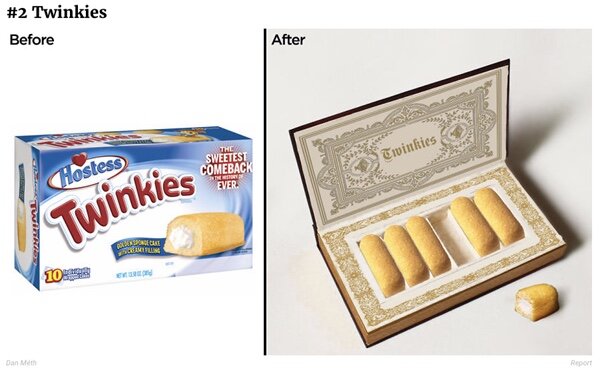
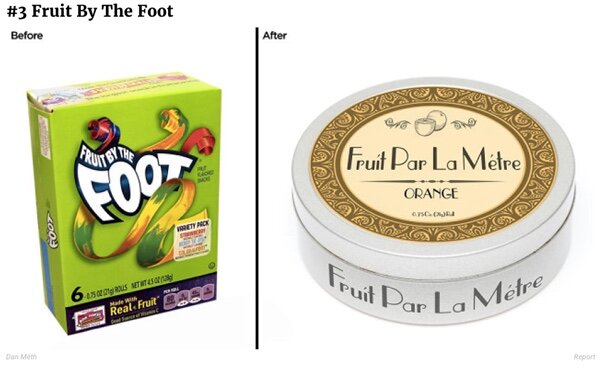
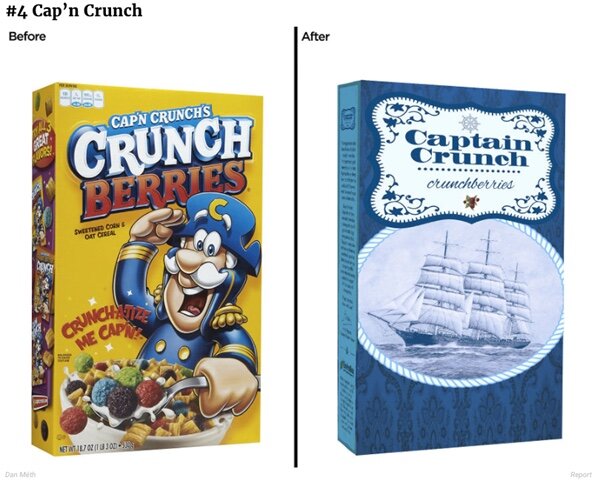
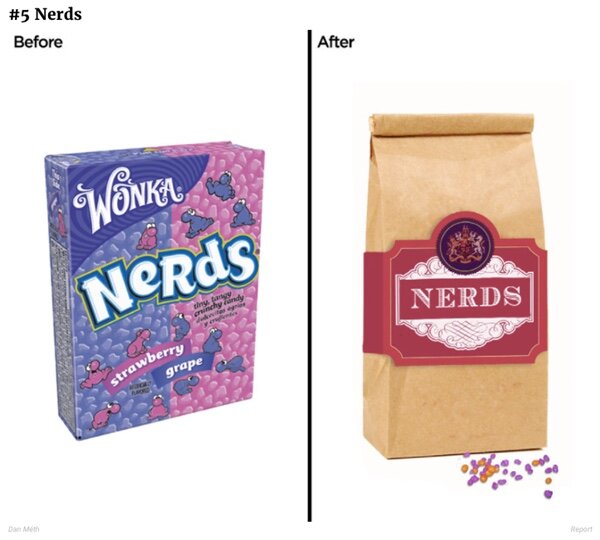
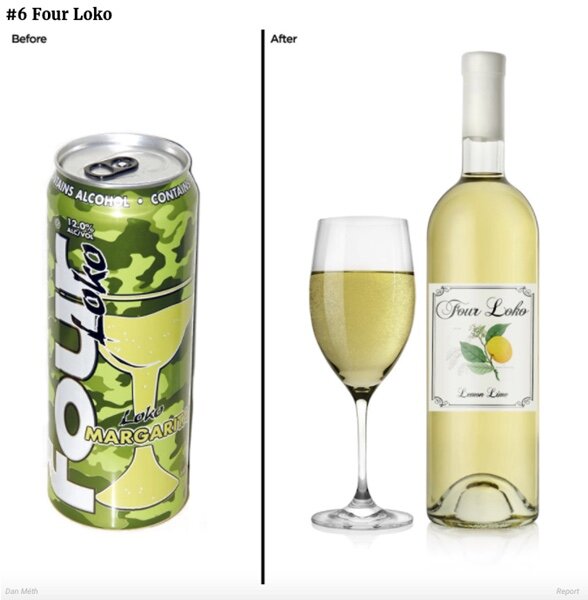
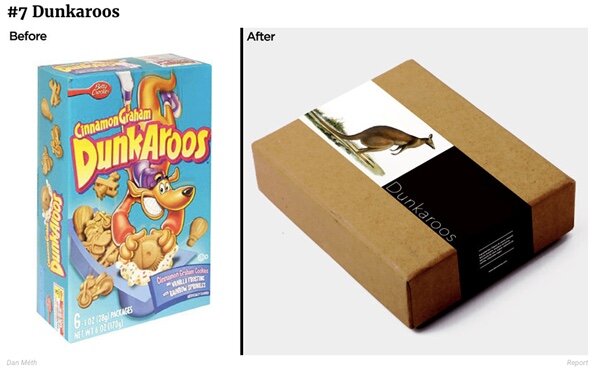
Clever, right?
The updated versions on the right are all classy, sophisticated, elegant, global, and kind of pretty. I don’t buy any of those products regularly – most of them I don’t buy at all – but that updated packaging makes me think I might want to. The idea is now in my head. If I was ever in the mood for Dunkaroos, the updated packaging would probably push me over the fence and convince me to buy them.
But Is It Evil?
Does that mean the artist is evil and that the businesses, if they chose to follow his designs, are also evil and just trying to steal my money? Of course not. It means Dan Meth is really good at his job and should probably be hired if he isn’t already, and that businesses would be smart to use his ideas to earn my money fairly and defeat my other options in the competition for my money in exchange for a product I want.
In fact, I’m glad businesses have to compete with each other via marketing in order to win my money. Marketing is a sign of a free society, of competition within the market, of the availability of options for consumers.
As Israel Kirzner observes:
It is not enough to buy gas and put it in the ground. The entrepreneur puts it in the ground in a form that the consumer recognizes. To do this requires much more than fabrication. It requires communication. It requires more than simple information. It requires more than writing a book, publishing it, and having it on a library shelf. It requires more than putting something in a newspaper in a classified ad and expecting the consumer to see it. You have to put it in front of the consumer in a form that he will see. Otherwise, you’re not performing your entrepreneurial task.
Countries that are not free have no need for marketing because there is only one government-approved option for selling any given product. You have no choices, and the government-approved company doesn’t have to try to win your money. They can just assume it. Which means they can make ugly, low-quality things and you just have to deal with it. This creates feelings of resentment among customers against the business, its owners, and its employees. There isn’t a personal relationship of any kind because it’s unnecessary, so the whole thing is cold. It’s all a mess.
Again, Kirzner put it well when he said:
To blame advertising for the imperfections and weaknesses of mankind is unfair. Advertising would exist under any type of free market system. Advertising would be less deceitful if men were less deceitful. It would be more ethical, less offensive, if men were less offensive and more ethical. But advertising itself is an integral, inescapable aspect of the market economy.
Be happy that you live where you have so many options that they have to compete, and that producers value you enough to spend money hoping to convince you to become a customer.
The people who are trying to sell you stuff are trying to get you to love what they do, and what they’re good at. There is everything right about that.
